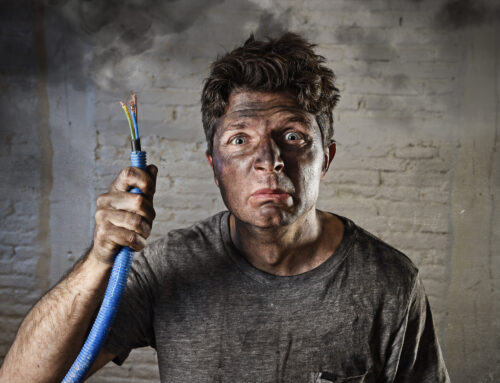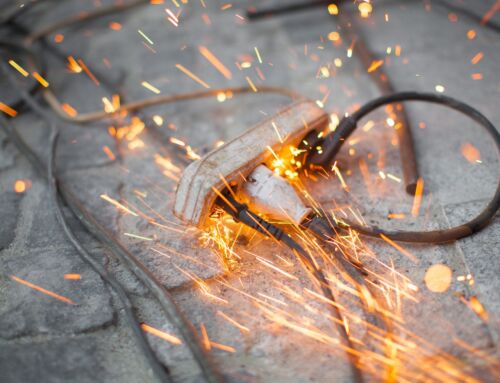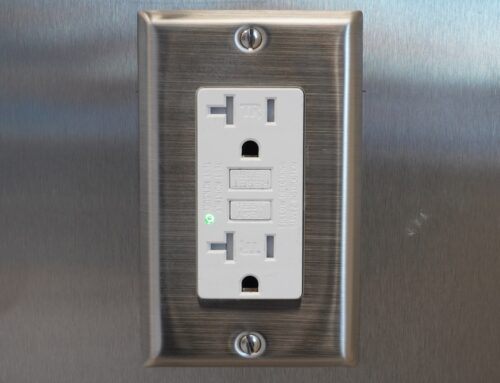As the proud owner of an older property, it’s important to be aware of the common electrical problems that may arise in your home. Older homes often come with outdated wiring, inadequate grounding, overloaded circuits, and faulty outlets, among other issues. These electrical problems can pose safety hazards and affect the functionality of your home. In this article, we will explore these common electrical problems in older homes and provide practical solutions to address them effectively.
Understanding the Importance of Electrical Safety in Older Homes
Before delving into specific electrical problems, it is crucial to understand the significance of electrical safety in older homes. Electrical systems in older properties may not meet modern safety standards or handle the increased electrical demands of today’s technology. By addressing these issues, you can ensure the safety of your family, protect your valuable electronics, and enhance the overall functionality of your home.
Outdated Wiring: A Common Issue in Older Homes
Signs of Outdated Wiring
Outdated wiring is one of the most prevalent electrical problems in older homes. Some signs of outdated wiring include flickering lights, frequently blown fuses, discolored outlets, or a burning smell near electrical outlets. If you notice any of these signs, it is essential to take prompt action.
The Dangers of Outdated Wiring
Outdated wiring poses several dangers, such as increased risk of electrical fires and electrical shocks. The insulation on old wires may deteriorate over time, exposing the conductive material and increasing the likelihood of short circuits and electrical arcing.
Rewiring Solutions for Older Homes
To address outdated wiring, consider consulting a licensed electrician. They can evaluate the condition of your wiring and recommend rewiring solutions tailored to your home’s specific needs. Partial rewiring or a complete rewiring of the house may be necessary to ensure safety and reliability.
Overloaded Circuits: Addressing Electrical Capacity Issues
Recognizing Overloaded Circuits
Overloaded circuits occur when the electrical load exceeds the capacity of the circuit. Common signs include circuit breakers frequently tripping, flickering lights, or appliances not working at full power. Overloaded circuits can lead to overheating and pose a fire hazard.
Dealing with Overloaded Circuits
To address overloaded circuits, distribute the electrical load evenly across multiple circuits. Consider relocating appliances or electronics to different circuits and avoid using too many power strips or extension cords. If the problem persists, consult an electrician to assess your electrical capacity and make necessary upgrades.
Faulty Outlets and Switches: Ensuring Proper Functionality
Identifying Faulty Outlets and Switches
Faulty outlets and switches can cause inconvenience and safety hazards. Common signs include outlets or switches not working, loose connections, or crackling sounds when using them. It’s important to address these issues promptly.
Replacing Faulty Outlets and Switches
To ensure proper functionality, replace faulty outlets and switches with new ones. If you are unsure about the replacement process, it is advisable to seek professional help. An electrician can ensure safe installation and verify the compatibility of the new components with your home’s electrical system.
Inadequate Grounding: Protecting Against Electrical Hazards
Understanding Grounding and Its Importance
Proper grounding is essential for electrical safety. Grounding provides a path for electrical currents to flow safely into the earth, preventing the risk of electrical shock. Older homes may have inadequate grounding systems or lack them altogether.
Improving Grounding in Older Homes
Consult an electrician to evaluate the grounding in your home. They can install grounding systems, such as ground fault circuit interrupters (GFCIs), to protect against electrical hazards. Additionally, consider upgrading to three-pronged outlets, which provide a dedicated grounding pathway for electrical devices.
Insufficient Electrical Capacity: Upgrading the Electrical System
Assessing Electrical Capacity
Older homes may have electrical systems that are inadequate for modern electrical demands. If you frequently experience tripped breakers or voltage fluctuations, it could indicate insufficient electrical capacity.
Upgrading the Electrical System
Upgrading the electrical system in your older home may involve replacing the main electrical panel, installing additional circuits, or upgrading the service entrance. It is crucial to hire a licensed electrician for such complex tasks to ensure compliance with electrical codes and safety standards.
Conclusion
Owning an older home comes with its charm but also brings electrical challenges. By being aware of common electrical problems and taking appropriate measures, you can enhance the safety and functionality of your older property. Addressing outdated wiring, overloaded circuits, faulty outlets, inadequate grounding, and insufficient electrical capacity are essential steps toward maintaining a safe and reliable electrical system in your home.
Frequently Asked Questions
1. Can I fix electrical problems in older homes on my own?
While some minor electrical repairs can be done by homeowners, it is generally recommended to consult a licensed electrician for any electrical work in older homes. They have the expertise and knowledge to handle complex electrical systems safely.
2. How often should I have the electrical system in my older home inspected?
It is advisable to have your electrical system inspected by a professional electrician at least once every few years, or when you notice any signs of electrical problems. Regular inspections can help identify issues early on and prevent potential hazards.
3. Are all electrical problems in older homes dangerous?
Not all electrical problems in older homes are necessarily dangerous. However, it is essential to address them promptly to avoid potential safety hazards. Consulting an electrician for proper evaluation and guidance is recommended.
4. Should I replace all the wiring in my older home?
The need to replace all the wiring in an older home depends on its condition and safety. A professional electrician can assess the wiring and recommend the appropriate course of action, whether it’s partial rewiring or a complete rewiring project.
5. Can I upgrade my electrical system without rewiring the entire house?
In some cases, it is possible to upgrade the electrical system without rewiring the entire house. Upgrades like installing a new electrical panel, adding circuits, and improving grounding can enhance electrical capacity and safety without the need for extensive rewiring.






